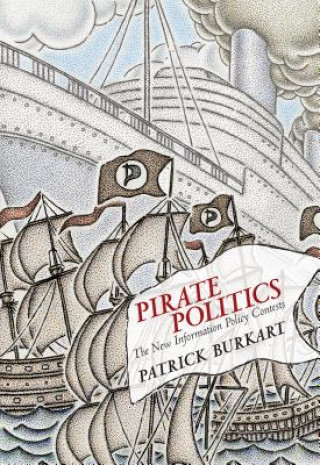
Livrare
Consilier de cumpărături





Nu se pretează? Nu contează! La noi puteți returna bunurile în 30 de zile
 Voucher cadou
orice valoare
Voucher cadou
orice valoare
Cu un voucher cadou nu veți da greș. În schimbul voucherului, destinatarul își poate alege orice din oferta noastră.
Pirate Politics
 engleză
engleză
 24 b
24 b
30 de zile pentru retur bunuri
Ar putea de asemenea, să te intereseze


The Swedish Pirate Party emerged as a political force in 2006 when a group of software programmers and file-sharing geeks protested the police takedown of The Pirate Bay, a Swedish file-sharing search engine. The Swedish Pirate Party, and later the German Pirate Party, came to be identified with a "free culture" message that came into conflict with the European Union's legal system. In this book, Patrick Burkart examines the emergence of Pirate politics as an umbrella cyberlibertarian movement that views file sharing as a form of free expression and advocates for the preservation of the Internet as a commons. He links the Pirate movement to the Green movement, arguing that they share a moral consciousness and an explicit ecological agenda based on the notion of a commons, or public domain. The Pirate parties, like the Green Party, must weigh ideological purity against pragmatism as they move into practical national and regional politics. Burkart uses second-generation critical theory and new social movement theory as theoretical perspectives for his analysis of the democratic potential of Pirate politics. After setting the Pirate parties in conceptual and political contexts, Burkart examines European antipiracy initiatives, the influence of the Office of the U.S. Trade Representative, and the pressure exerted on European governance by American software and digital exporters. He argues that pirate politics can be seen as "cultural environmentalism," a defense of Internet culture against both corporate and state colonization.
Informații despre carte
 engleză
engleză




 Cum să cumpăr
Cum să cumpăr

























